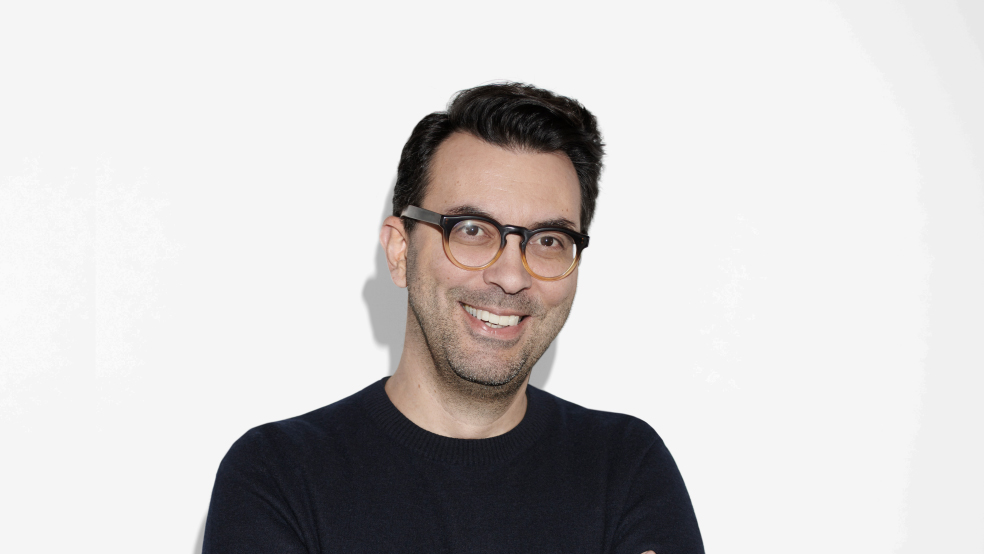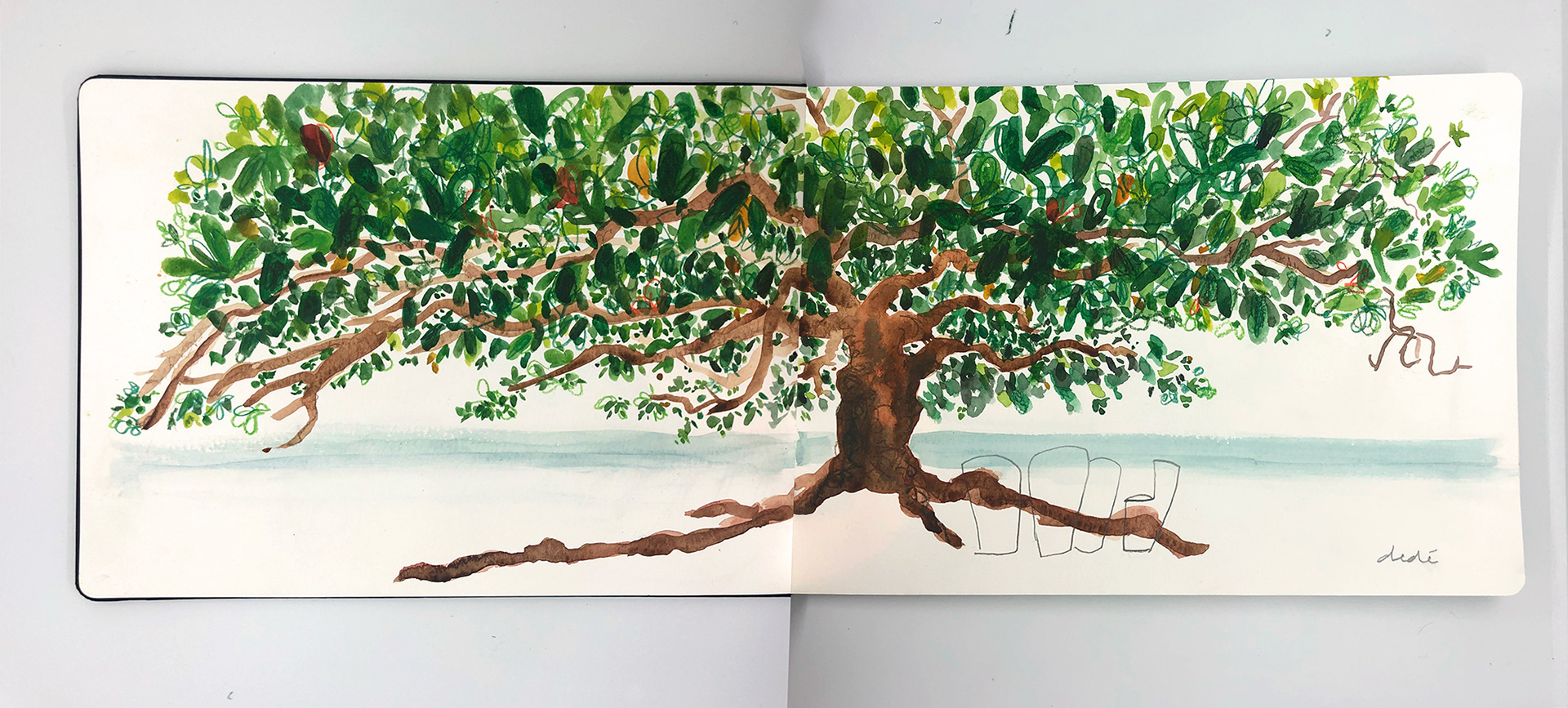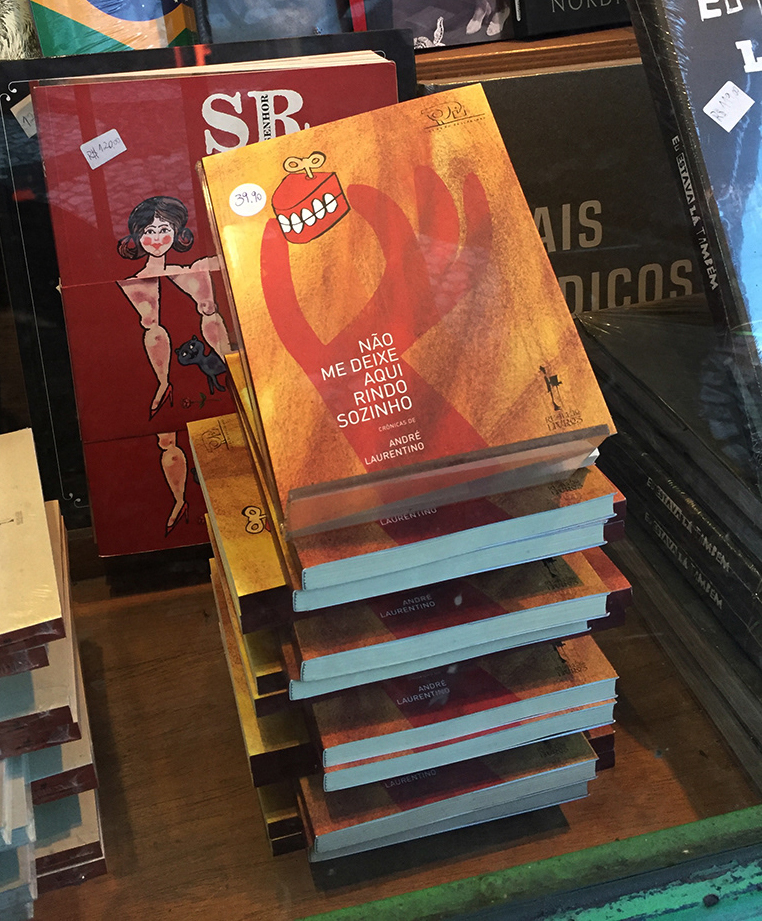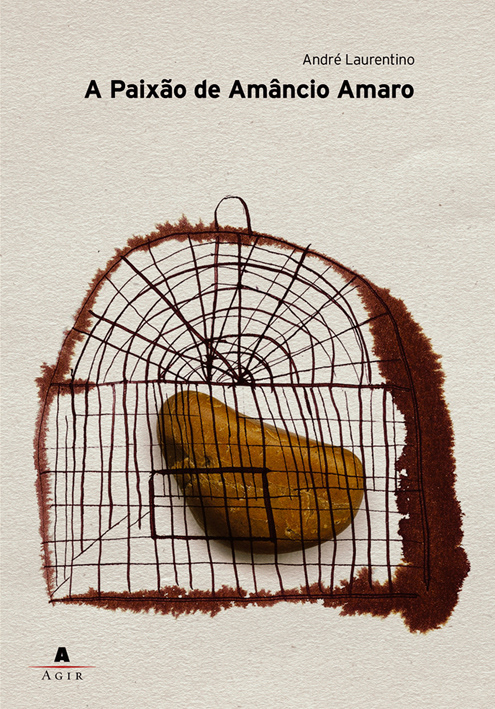
André 'Dede' Laurentino is a Brazilian-born creative working as Ogilvy's chief creative officer in London. I caught up with him recently to talk about his career trajectory and what makes a good advert, but our conversation also touched upon the fascinating subject of what it's like to live abroad and speak another language, and how that affects creativity.
Aside from Laurentino's agency work, he writes and draws, and has created short stories and a novel. He's also written TV series for Brazil's main network and had a column in O Estado de S. Paulo for a decade. I asked him more about his early career...
What was the first advertising campaign you worked on?
I'm not from São Paulo, I'm from the northeast of Brazil. I had to leave home because the ad industry of Brazil mainly sits in São Paulo, in the southeast. I worked for an independent Brazilian agency that was very famous at the time. The first time that I put my name to an ad by that agency, I considered myself to be finally in advertising. And it was a campaign for a charity asking for donations to help the underprivileged people of Brazil.
It was a series of print ads trying to make people aware of the hardship that they were going through, and that you could help them out. So I wrote some lines. I also did the layouts, but there was a writer that wrote, mainly it was his responsibility to write the lines, but because I was ambidextrous in that I wrote and did the layouts, I wrote one or two headlines.
I made horrible mistakes in printing the campaign at the wrong time. It was my first time in a big agency. I didn't know how the printers worked, and I arrived late to print the campaign. And my boss was furious with me because it took forever for me to get the presentation mounted. As he came back he said, 'everything is going wrong, and it's your fault'. He said, 'the one thing that saves you today is that the headline he likes the most is the one you wrote'. So I was saved by the gong.

What's the difference between advertising in Brazil and advertising in the UK?
Well, let's start by saying what's very similar, in both countries at the time I was starting, advertising was part of culture. It was something people would discuss in taxis and buses. The Brazilian audience as well as the British audience were very interested in advertising and they would comment on it, it was part of culture... strong enough, creative enough to be part of culture.
Now the way in which they belong to culture is very different because the two cultures are very different. So in Brazil, there's no such thing as understatement, for example, and here, there is such a thing as understatement, and self-deprecating humour, the very British thing...
I think the Brazilian sense of humour is closer to the American sense of humour than it is the British one. But there is humour – that's another common ingredient, many ads here would be very funny. And many ads in Brazil would also be funny in different ways and for different reasons.
I think the British advertising culture has more nuance than in Brazil, where it's very hard and fast... The print campaigns in Brazil would be very direct. I'm not diminishing it by saying it's very direct. It's just it's a strong idea presented in the most obvious direct and impactful way.
Whereas in the UK, you would have the quality of nuanced advertising and a message that has subtleties. It's like colours – If messages had colours, here, it would be more pastel colours, or tone over tone; in Brazil, it's contrasting tones, very bright, vivid colours.
Do you think speaking more than one language makes you more creative?
I'm not sure because there are people that are way more creative than I am and they may only speak one language, so who am I to say that makes me more creative? It makes me think differently.

What about living abroad? Does that help creativity?
I think people that live abroad or even leave their own city or town are already a different person. If you leave Edinburgh to live in London, or vice versa, that's already a different part of you, because you're no longer in your hometown, no longer living in your accent. That is a very big deal to live outside of your own accent.
When I left the northeast of Brazil for Sao Paolo, I left my accent. The minute I said 'hi', everyone would know where I'm from. They would know something about me even if I tried to hide... I remember when I was here in the UK at the agency, someone said 'hey, there's a Brazilian planner, working on the third floor. Have you met her?' I said 'no'.
'Oh, you should meet her. She has just arrived from Brazil.' So I went and I spoke in Portuguese. I literally said 'hi'. She replied, 'you're from the north, aren't you?' And I'm like, 'wow, how much do I give away with two vowels'?... So if you're living outside of your accent, it's already different... I think it makes it makes for a richer experience in life. I'm not saying better, but richer.
How does your copywriting compared in English to Portugese?
It does not compare. I can write in English. But it's as if you led your daily life with boxing gloves. You could do most things – take the tube, eat, scratch your head. With a boxing glove you'd scratch your head in a different way. And in Portuguese, I am more aware of nuances and hidden meaning...
For example, I can only read poetry in Portuguese. I can understand poetry in English. Of course I can. I love poetry. The way that a poem that's written in Portuguese hits me is very different because it talks to parts of my brain that are subconscious – it talks to my childhood and talks to memories of those words, when I first heard them or what they conjure up in my language that they don't conjure up in a different language. And it's special.
So in the same way, when I write [in English] it's different, it's different than when I write in Portuguese. The other thing is being funny in a foreign language is very difficult... If you're funny in your own language, it's natural... I'm very funny in Portuguese. Well, we'll say I am. I remember there was the tea lady in the first agency I worked, she mumbled to herself, 'this André is a funny guy'... But I understand that in English, it's not the same.

As you've moved up the career ladder, how have you balanced being an artist and a business leader
The reason I do my writing and my drawing is because there are things that I want to say that don't belong in a brief, that don't belong in what I do for our clients, and I need to find an outlet for those things that I want to say.... If I repress those things I will be unhappy or I'll be less happy. And the happier you are, the more creative you are; the happier you are, the more confident you are and the more creative you can be.
Doing these other things has helped me in my own personal happiness... It's what I do in my spare time, some people play tennis or go to the gym, some people play games. I write and I draw for my own creative health, I suppose... I use a very different part of my brain to be a leader. So I need to keep both [sides] very well oiled.
Find out more about Dede via his website and the Ogilvy site.







